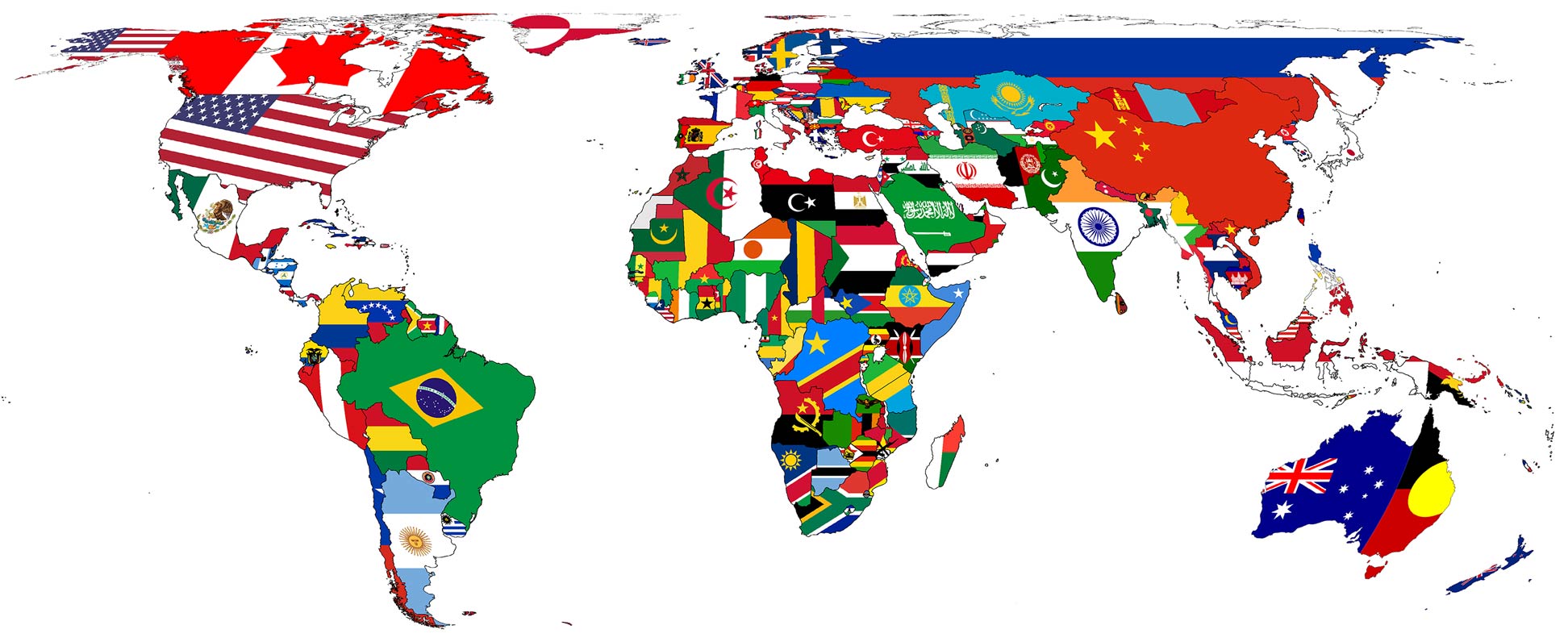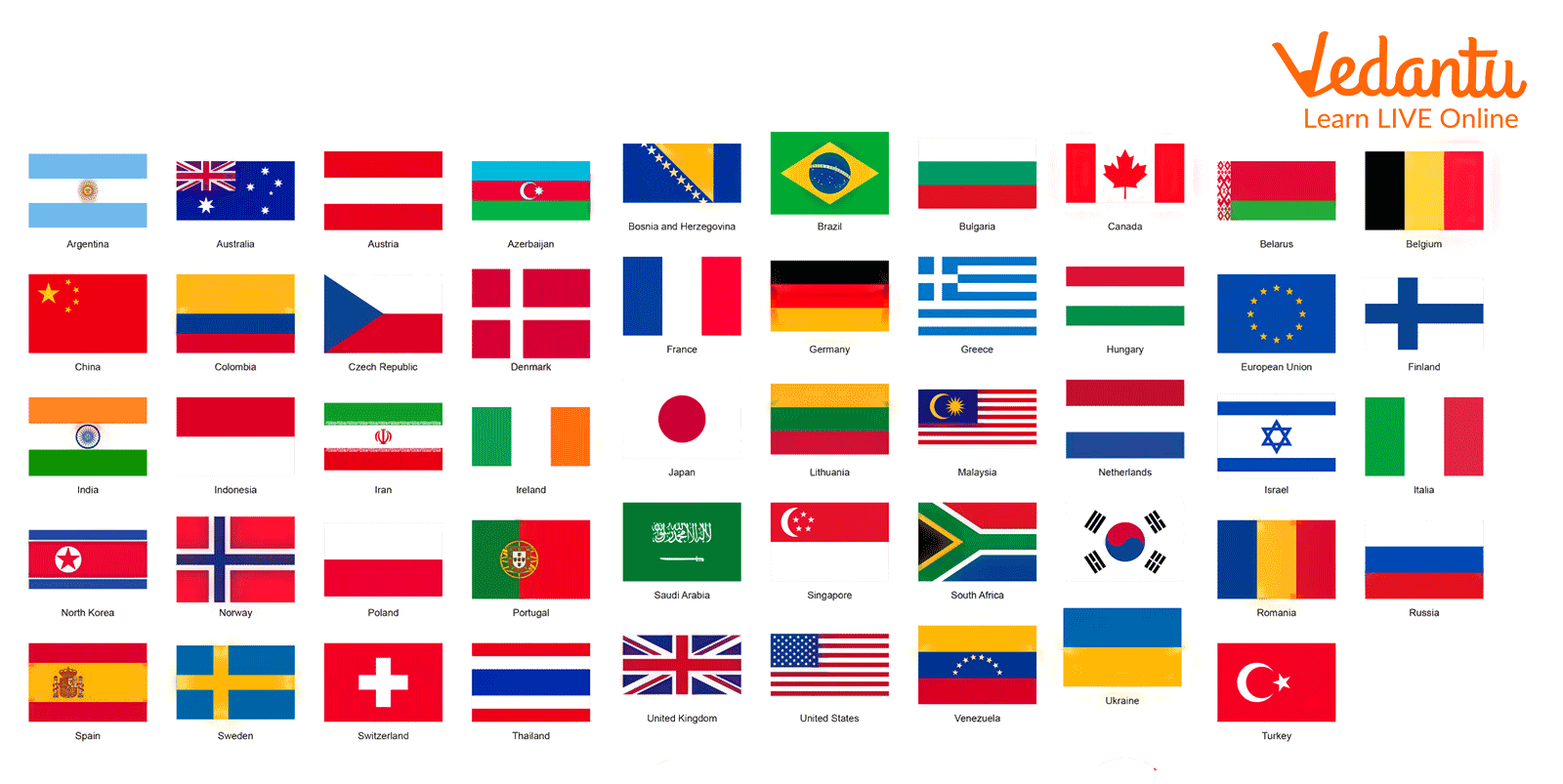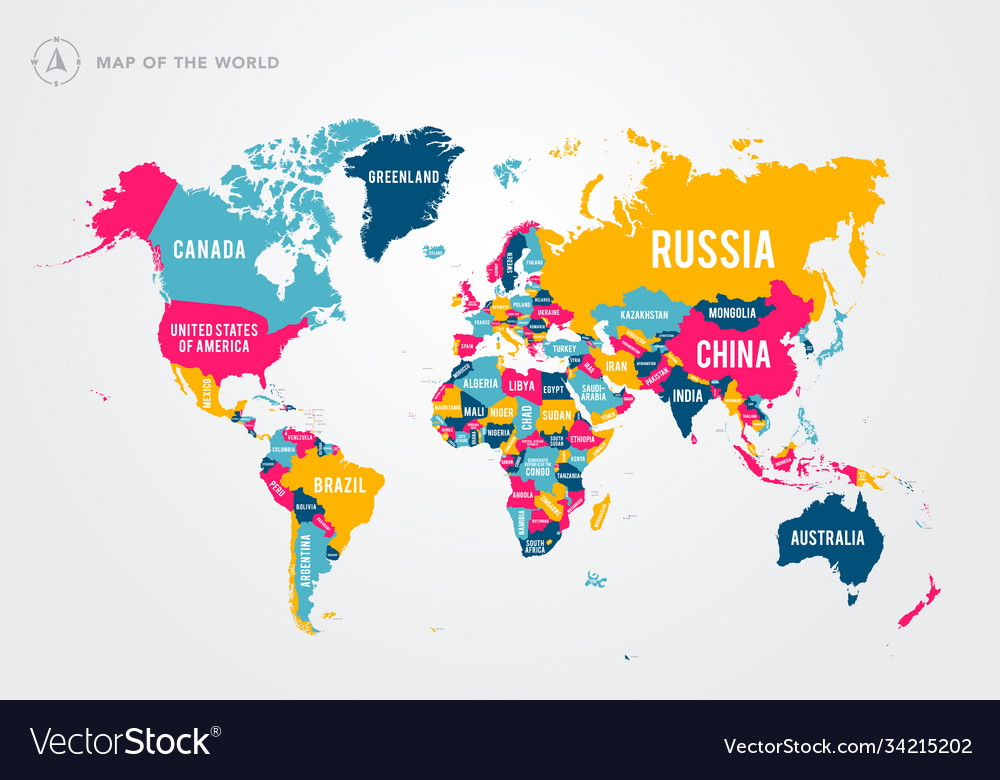Have you ever stopped to think about what the word "country" truly means? It's a word we use all the time, for sure, yet its actual meaning, especially when we consider how it's used on the global stage, is a bit more varied than you might first guess. We often picture a place with clear boundaries and a government that runs things, but the language itself, well, it tells a slightly different story, doesn't it? This idea of a "country" carries a lot of different feelings and official weights, depending on who is saying it and what they are talking about, which is pretty interesting when you get right down to it.
When we talk about a "country," for instance, the sense of it being a fully independent, self-governing unit is, actually, quite low. If you look at how people talk about these things in global agreements and official papers, they tend to use words like "State" or "sovereign state" to mean a place that has its own full power and authority. This distinction, you know, it points to how our everyday words sometimes have a softer, more general feel compared to the precise terms used in official discussions, which is something to think about.
This difference in how we use words really highlights how rich and layered our shared past and present truly are. From the way we name places to how we put together information about them, every little detail adds to the bigger picture of what a place is all about. We're going to explore some of these surprising details, looking at how language shapes our perceptions, how information gets shared, and even how academic standing plays a part in what we consider a place's lasting legacy. So, let's just consider some of these ideas.
Table of Contents
- What Does "Country" Truly Mean?
- Exploring the Idea of a "Nation" within a "Country"?
- Is "Country" Just About Nations, or Can It Mean Regions Too?
- How Do We Point to Places in a Way That Shows Country Heritage?
- Finding the Roots of Knowledge - Books and Country Heritage
- Sharing Discoveries - Academic Work and Country Heritage
- Digital Connections - Modern Challenges to Country Heritage Access
- Academic Excellence - A Part of Country Heritage
What Does "Country" Truly Mean?
When we talk about the word "country," you know, it actually holds very little of that strong, official sense of being in charge, or having full command over its own affairs, which is what we often think of when we hear about nations on the global stage. For things like global agreements and formal papers, the more precise terms people use are "State" or "sovereign state." This is quite a subtle point, isn't it, how the words we pick can change the whole feel of what we are trying to say?
The Many Sides of "Country" - A Linguistic Look at Country Heritage
If we look at where the English tongue first took shape, in a place like the United Kingdom, we see something quite interesting. Their own official government web pages, in explaining what makes up the UK, mention that it's made up of four "countries." This really shows, doesn't it, how the word "country" can be used in a way that doesn't necessarily mean a fully independent, self-ruling unit in the global sense. It can simply refer to a distinct cultural or geographical part of a bigger whole, which is a neat little bit of country heritage itself.
Exploring the Idea of a "Nation" within a "Country"?
The words "state," "nation," and "country" can mean different things depending on the situation, which can be a bit confusing. For example, a former leader once said something like, "Four nations in one country," referring to the United Kingdom as the "country" and places like Scotland as "nations." This really makes you think, doesn't it, about the various ways we talk about groups of people and the places they call home. It brings up questions about why, for instance, a large international body is called the "United Nations" and not something else. It's almost as if each word carries its own special weight and history, shaping how we see a place's country heritage.
- Paysbig Potawatomi Bingo Casino
- Dreamworks Water Park Tickets
- Wrangler Pants
- Great Wolf Lodge Michigan
- 30 Minute Timer
Different Names, Different Meanings - Understanding Country Heritage Terms
The way we use these terms can sometimes feel a little loose, so. A "nation" often speaks to a group of people who share a common culture, background, or sense of belonging, whether or not they have their own independent land. A "state," on the other hand, usually means a political entity with defined borders and a government that runs things. Then there's "country," which, as we've seen, can be quite broad. These distinctions are a part of the linguistic country heritage that helps us describe the complex ways people organize themselves and their territories.
Is "Country" Just About Nations, or Can It Mean Regions Too?
A question that sometimes comes up is whether the word "country" can also mean a smaller area or region. Lately, you know, some brands from other parts of the world, when they ask you to pick your location, will list places like Hong Kong or Taiwan separately, almost as if they are distinct "countries." When I looked up "country" in some electronic dictionaries, they only gave the meaning of a sovereign nation. However, if you check a more comprehensive source, like a certain well-known dictionary, it actually does list "region" as one of the meanings. This difference in how words are defined can be pretty interesting, and it suggests that how we label places can be a bit fluid, even when we are talking about something as fundamental as a place's country heritage.
Beyond Borders - Local Areas and Country Heritage
This idea that "country" might also refer to a smaller geographic area, like a region, is quite a thought. It makes sense, in a way, especially when we think about how people often talk about "the country" meaning rural areas, or a specific part of a larger landmass. This kind of flexibility in language shows how people use words to describe their immediate surroundings as well as larger political units. It's a subtle but important part of how we categorize and understand the places that make up our world, and it plays a role in how we perceive the smaller, more localized aspects of country heritage.
How Do We Point to Places in a Way That Shows Country Heritage?
When you need to write an address in English, there's a simple trick to get it right, which you can pick up fairly quickly. In many places, like China, you write addresses starting from the biggest part and going down to the smallest, so you'd have the country, then the province, then the city, then the district, then the street, and finally the house number. But, you know, when you put that into English, it's the exact opposite. You start with the smallest detail and work your way up to the largest. This little difference in how we order information is a small but significant part of how places present themselves to the world, and it helps to make sure that messages about country heritage get to the right spot.
Getting Addresses Right - A System for Country Heritage Information
So, for instance, if you had a house number on a street in a certain district, city, province, and country, in English you'd write the house number first, then the street, then the district, and so on, until you get to the country. This system, while seemingly just about mail, is actually about how information flows across different places. It's a convention that helps people from different linguistic backgrounds communicate about physical locations, which is quite important for anything from sending a postcard to sharing historical records. It’s a quiet but persistent piece of our shared country heritage, a way of making sure things are understood, more or less, by everyone.
Finding the Roots of Knowledge - Books and Country Heritage
When you're putting together a list of sources for a written piece, especially for a book, you often need details like the publisher's name and where the book was printed. Finding the printing location for some books can be a bit of a challenge, as there might be a whole bunch of place names listed, and it's hard to know which one to pick. But, I recently found out a really neat way to figure out a book's publication details, and that's by using its International Standard Book Number, or ISBN. Every single book, you know, has one of these numbers printed somewhere inside, usually on the title page or the page right after it. This number is like a special code that holds a lot of information about the book, including its origins, which can be very helpful for connecting to country heritage.
ISBNs - A Key to Unlocking Written Country Heritage
The ISBN, it turns out, is a pretty powerful tool for anyone looking to trace the origins of written works. Just by finding this specific string of numbers, you can often look up a book's publisher and the place where it was made. This makes the job of citing sources, or simply learning more about a book's background, much simpler. It's a standardized way of cataloging human knowledge, and in that sense, it helps us keep track of the vast collection of stories, facts, and ideas that make up a place's recorded country heritage. It’s a very practical way to make sure information is accurate.
Sharing Discoveries - Academic Work and Country Heritage
There are some types of academic publications, often called "hybrid open access" journals, where authors can choose to either pay a fee to make their work freely available to everyone, or they can go the more traditional route where people have to subscribe to read it. The good news is, for these kinds of journals, neither of those choices will stop the paper from being listed in major academic databases, as long as the journal itself is still included in those listings. Once a paper is put out there, it usually takes a little bit of time before it shows up in the online search tools that researchers use, but it does get there. This way of sharing knowledge is quite important for how ideas spread and how a place's intellectual country heritage grows.
Journals and Open Access - Spreading Country Heritage Ideas
The system of open access publishing, even in its hybrid form, plays a big part in making sure that new findings and thoughts are available to a wider group of people. This means that researchers, students, and just curious folks can get their hands on important information without too many barriers. It helps to speed up the spread of ideas and allows for more people to build on existing knowledge. This open sharing, in a way, contributes to the collective country heritage of a place, making its academic contributions more accessible and impactful globally. It’s a really helpful thing for spreading information, you know.
Digital Connections - Modern Challenges to Country Heritage Access
Sometimes, people run into problems when trying to get certain online services, like signing up for specific artificial intelligence programs. You might see messages pop up saying things like, "This account can't get Google One AI Pro," or "This service isn't available where you are," or even "Your account isn't right for this plan." A lot of people have been asking about how to get around these kinds of issues lately. These sorts of regional blocks or account limitations can make it tricky to access certain modern tools and information, which, you know, could affect how easily someone can explore digital resources related to country heritage or anything else, for that matter.
Online Hurdles - Keeping Up with Country Heritage in the Digital Age
These digital access issues, while seemingly just about a specific service, actually point to a broader point about how information and tools are distributed around the world. When certain services are not available in particular areas, it can create gaps in what people can learn or do online. This can be a bit frustrating, especially if someone is trying to find out about something specific, like historical records or cultural practices that are part of a place's country heritage. It reminds us that even in our connected world, there are still boundaries that affect how easily we can reach digital information, which is something to consider.
Academic Excellence - A Part of Country Heritage
Speaking of knowledge, the quality of universities in a place like North Carolina in the United States is quite high. For instance, one well-known university there is ranked pretty high, around eighth place, while another is about twenty-seventh, and a third is thirty-third. Then there's a smaller college that focuses on liberal arts, which used to be in the top ten but is now around eleventh. These schools, you know, form a kind of academic cluster, often referred to as a "triangle," with a strong focus on science. The standing of these learning places shows a bit about the intellectual strength and contributions of a place, which is certainly a part of its country heritage.
University Standing - Building a Strong Country Heritage
The rankings and reputations of universities are, in a way, a reflection of a place's commitment to learning and progress. When institutions of higher education are doing well, it suggests a strong foundation for new ideas, research, and the development of bright minds. This contributes significantly to the overall standing of a place on the global stage, not just in terms of academics but also in terms of its ability to innovate and contribute to human knowledge. These achievements are, without a doubt, a valuable part of a place's country heritage, shaping its future while honoring its past efforts in education. It’s a pretty big deal, actually, for a place to have such good schools.
Related Resources:



Detail Author:
- Name : Dr. Norbert McKenzie
- Username : dgrady
- Email : kelsie.lubowitz@gmail.com
- Birthdate : 1974-12-02
- Address : 6485 Dedrick Views Cummingsshire, PA 35206
- Phone : 769-530-7312
- Company : Prohaska-Cummerata
- Job : Travel Clerk
- Bio : Aut repudiandae dolores qui deleniti harum natus. Doloremque ipsam voluptate optio ipsum at beatae iste. Dolor repellendus itaque delectus pariatur at suscipit magnam. Debitis quod ipsum tempore.
Socials
linkedin:
- url : https://linkedin.com/in/lester2227
- username : lester2227
- bio : Sunt aut sint quia quia natus esse quasi sequi.
- followers : 693
- following : 1839
twitter:
- url : https://twitter.com/lester_real
- username : lester_real
- bio : Dolorem ut eligendi dolorem voluptas aliquam quod est. Eum ea rerum quo tempore. Hic in ad et qui aut. Reprehenderit illo voluptates officia quia eveniet.
- followers : 6693
- following : 2656
facebook:
- url : https://facebook.com/labbott
- username : labbott
- bio : Voluptates quisquam optio quia. Maxime sed explicabo aut sed id temporibus.
- followers : 3465
- following : 2799